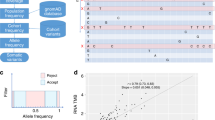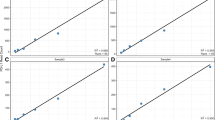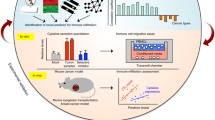Abstract
Immune-based cancer therapies such as checkpoint inhibitors (CPI) and vaccines have been increasingly studied across different cancer types. Response to such therapies depends on a number of factors such as mutational burden, neoantigen load, presence of tumor infiltrating lymphocytes, among others. Next-generation sequencing (NGS) technologies are particularly attractive to interrogate the immune response compared to traditional assays such as qRT-PCR and immunohistochemistry (IHC) because they enable the discovery of neoantigens and simultaneous profiling of immune infiltration using gene expression on a large scale. Current approaches in immune profiling utilizes whole-exome sequencing (WES) for human leukocyte allele (HLA) typing and neoantigen predictions, and RNA sequencing (RNA-seq) for filtering unexpressed neoantigens and inferring immune infiltration. They have been successfully applied to the tumor setting as there is abundant sample material to perform both experiments. However, premalignant specimens are often much smaller compared to tumors. Therefore, there is a need to explore the viability of adopting a single approach for immune, neoantigen, and mutation profiling. Here, we describe our workflow of using RNA-seq to analyze mutational burden, neoantigen load, and immune expression profile.
Access this chapter
Tax calculation will be finalised at checkout
Purchases are for personal use only
Similar content being viewed by others
Abbreviations
- CPI:
-
Checkpoint inhibitors
- CRC:
-
Colorectal cancer
- FAP:
-
Familial Adenomatous Polyposis
- FSP:
-
Frameshift peptides
- GEO:
-
Gene Expression Omnibus
- HLA:
-
Human leukocyte typing
- IHC:
-
Immunohistochemistry
- LS:
-
Lynch syndrome
- MHC:
-
Major histocompatibility complex
- MMR:
-
Mismatch repair
- MS:
-
Microsatellite
- MSigDB:
-
Molecular Signatures Database
- NGS:
-
Next-generation sequencing
- RNA-seq:
-
RNA sequencing
- TCGA:
-
The Cancer Genome Atlas
- TCR:
-
T-cell receptor
- TPM:
-
Transcripts per million
- WES:
-
Whole-exome sequencing
References
Yarchoan M, Johnson BA 3rd, Lutz ER, Laheru DA, Jaffee EM (2017) Targeting neoantigens to augment antitumour immunity. Nat Rev Cancer 17(4):209–222
Network TCGA (2012) Comprehensive molecular characterization of human colon and rectal cancer. Nature 487(7407):330–337
Chang K, Taggart MW, Reyes-Uribe L et al (2018) Immune profiling of premalignant lesions in patients with lynch syndrome. JAMA Oncol 4(8):1085–1092
The Cancer Genome Atlas Network (2012) Comprehensive molecular characterization of human colon and rectal cancer. Nature 487(7407):330–337
Dobin A, Davis CA, Schlesinger F et al (2013) STAR: ultrafast universal RNA-seq aligner. Bioinformatics 29(1):15–21
Van der Auwera GA, Carneiro MO, Hartl C et al (2013) From FastQ data to high confidence variant calls: the Genome Analysis Toolkit best practices pipeline. Curr Protoc Bioinformatics 43:11.10.1–11.10.33
Li B, Dewey CN (2011) RSEM: accurate transcript quantification from RNA-Seq data with or without a reference genome. BMC Bioinformatics 12:323
Broad Institute (2018) Picard Tools. {Broad Institute, GitHub repository}
Hundal J, Carreno BM, Petti AA et al (2016) pVAC-Seq: a genome-guided in silico approach to identifying tumor neoantigens. Genome Med 8(1):11
McLaren W, Gil L, Hunt SE et al (2016) The Ensembl variant effect predictor. Genome Biol 17(1):122
R: a language and environment for statistical computing [computer program]. R Foundation for Statistical Computing; 2013
Wickham H. tidyverse: Easily Install and Load the 'Tidyverse. 2017
Love MI, Huber W, Anders S (2014) Moderated estimation of fold change and dispersion for RNA-Seq data with DESeq2
Hanzelmann S, Castelo R, Guinney J (2013) GSVA: gene set variation analysis for microarray and RNA-seq data. BMC Bioinformatics 14:7
Rosenthal R, McGranahan N, Herrero J, Taylor BS, Swanton C (2016) DeconstructSigs: delineating mutational processes in single tumors distinguishes DNA repair deficiencies and patterns of carcinoma evolution. Genome Biol 17:31
Lucas A (2014) amap: another multidimensional analysis package
Llosa NJ, Cruise M, Tam A et al (2015) The vigorous immune microenvironment of microsatellite instable colon cancer is balanced by multiple counter-inhibitory checkpoints. Cancer Discov 5(1):43–51
Yoshihara K, Shahmoradgoli M, Martinez E et al (2013) Inferring tumour purity and stromal and immune cell admixture from expression data. Nat Commun 4:2612
Liberzon A, Birger C, Thorvaldsdottir H, Ghandi M, Mesirov JP, Tamayo P (2015) The molecular signatures database (MSigDB) hallmark gene set collection. Cell Syst 1(6):417–425
Genomes Project C, Auton A, Brooks LD et al (2015) A global reference for human genetic variation. Nature 526(7571):68–74
Lek M, Karczewski KJ, Minikel EV et al (2016) Analysis of protein-coding genetic variation in 60,706 humans. Nature 536(7616):285–291
Li H, Handsaker B, Wysoker A et al (2009) The sequence alignment/map format and SAMtools. Bioinformatics 25(16):2078–2079
Alexandrov LB, Nik-Zainal S, Wedge DC et al (2013) Signatures of mutational processes in human cancer. Nature 500(7463):415–421
Le DT, Durham JN, Smith KN et al (2017) Mismatch repair deficiency predicts response of solid tumors to PD-1 blockade. Science 357(6349):409–413
Boegel S, Lower M, Schafer M et al (2012) HLA typing from RNA-Seq sequence reads. Genome Med 4(12):102
Rosati E, Dowds CM, Liaskou E, Henriksen EKK, Karlsen TH, Franke A (2017) Overview of methodologies for T-cell receptor repertoire analysis. BMC Biotechnol 17(1):61
Bolotin DA, Poslavsky S, Mitrophanov I et al (2015) MiXCR: software for comprehensive adaptive immunity profiling. Nat Methods 12(5):380–381
Brown SD, Raeburn LA, Holt RA (2015) Profiling tissue-resident T cell repertoires by RNA sequencing. Genome Med 7:125
Maruvka YE, Mouw KW, Karlic R et al (2017) Analysis of somatic microsatellite indels identifies driver events in human tumors. Nat Biotechnol 35(10):951–959
Acknowledgments
This work was supported by grants R21 CA208461 and R01 CA219463 (US National Institutes of Health/National Cancer Institute), The University of Texas MD Anderson Cancer Center Colorectal Cancer Moonshot Program, and a gift from the Feinberg Family to E.V.; Cancer Prevention Educational Award R25T CA057730 (U.S. National Institutes of Health/National Cancer Institute) to K.C.; and P30 CA016672 (US National Institutes of Health/National Cancer Institute) to the University of Texas Anderson Cancer Center Core Support Grant.
Conflict of Interest: Dr. Vilar has a consulting or advisory role with Janssen Research and Development and Recursion Pharma. He has received research support from Janssen Research and Development.
Author information
Authors and Affiliations
Corresponding author
Editor information
Editors and Affiliations
Rights and permissions
Copyright information
© 2022 The Author(s)
About this protocol
Cite this protocol
Chang, K., McAllister, F., Vilar, E. (2022). Transcriptomic-Assisted Immune and Neoantigen Profiling in Premalignancy. In: McAllister, F. (eds) Cancer Immunoprevention. Methods in Molecular Biology, vol 2435. Humana, New York, NY. https://doi.org/10.1007/978-1-0716-2014-4_7
Download citation
DOI: https://doi.org/10.1007/978-1-0716-2014-4_7
Published:
Publisher Name: Humana, New York, NY
Print ISBN: 978-1-0716-2013-7
Online ISBN: 978-1-0716-2014-4
eBook Packages: Springer Protocols




